Informal settlements demand safe and liveable urban spaces for the sustainability of the cities. Effective waste management and sanitation in informal settlements reflects not only the inclusivity of the city but is also an important pillar for a sustainable city. Numerous cities are implementing diverse measures to enhance waste management systems, aiming to safeguard the health and well-being of residents while minimizing the adverse environmental consequences. The cities are shifting their focus towards not only upgrading the waste management in these informal settlements but also moving towards zero-waste model.
Navi Mumbai faced many challenges due to urbanization and informal settlements. To tackle this, Navi Mumbai Municipal Corporation (NMMC) implemented the 'Zero Waste Model,' involving sanitation workers and ragpickers in waste collection, segregation and processing. 10,000 households of the informal settlements are benefitted by the zero waste models.
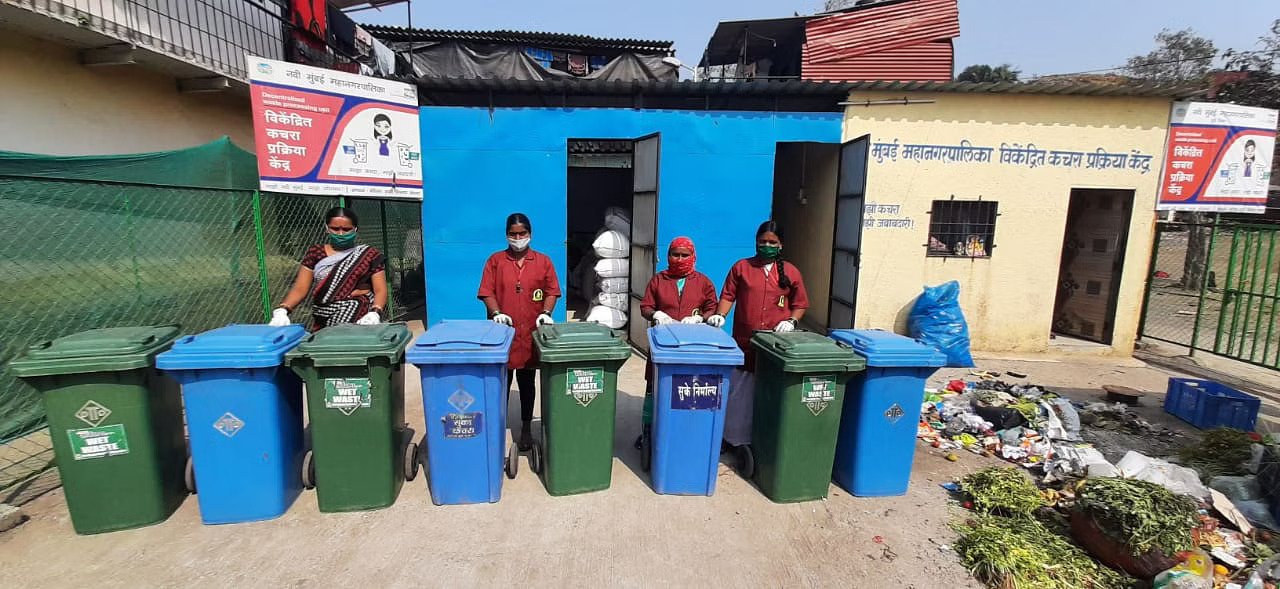
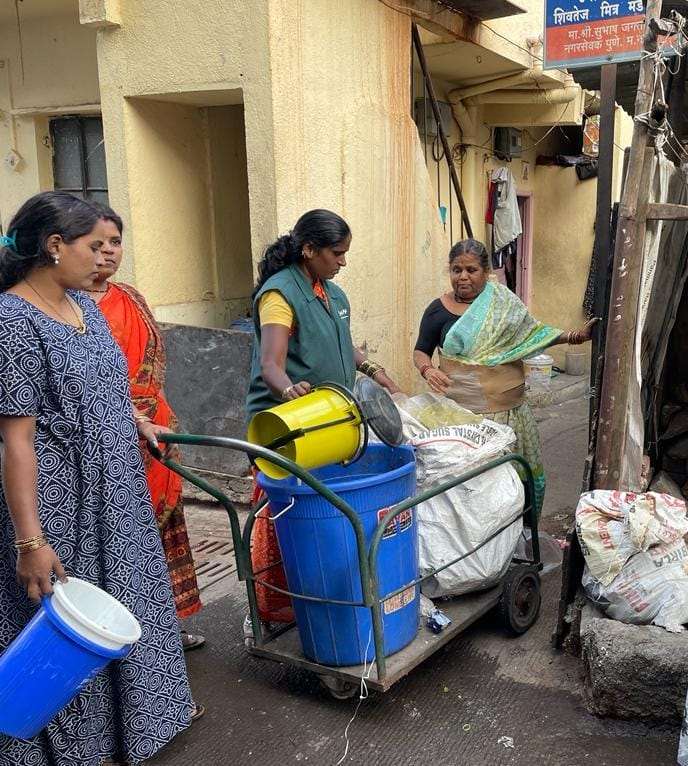
These households generate nearly 270 metric tons waste per month. In April 2019, NMMC introduced decentralized composting units in selected informal settlements to improve waste management. Partnering with NGOs, they implemented the Zero Waste Model, distributing twin bins for waste segregation and setting up compost pits. Local communities actively participated by practicing segregation and handing waste to a group of waste pickers called 'Parisar Bhagini', who played a crucial role in mobilizing the community, providing training, creating livelihood opportunities, and strengthening decentralized solid waste management. The model has uplifted women belonging to self-help groups (SHGs), providing sustainable employment and increased the average monthly income by Rs. 6000.
The Pune Municipal Corporation (PMC) has implemented community-driven waste management initiatives in 70
informal settlements with the goal of achieving Zero Waste. These initiatives involve system
improvements, waste-picker subsidies, and collaborations with NGOs for organic waste management. Pune
started the push-cart based, waste-picker integrated door step collection system managed by SWaCH Pune
Cooperative Society, covering about 70% of the city's properties. Waste pickers collect monthly service
fees from citizens, and benefit from selling recyclables, segregation, and recycling. PMC allocated
dedicated space for a community composting unit, handling 200 kg of wet waste daily, constructed and
maintained by NGOs, reducing waste costs by 50% and empowering waste pickers with monthly income of Rs.
1500 through composting. 264 dry waste storage units called ‘Pinjras’ were installed. Each Pinjra
enables the recycling of up to 50 tons of material annually. Modular biomethanation units have been
deployed in selected informal settlements, converting organic waste into energy. 50 operational units
convert over 1 lakh kg of waste, generating over 3 cr liters of biogas, offsetting 25,000 tons of CO2
emissions. Pune's waste management model has helped approx. 170,000 households with 100% door step
collection and segregation.
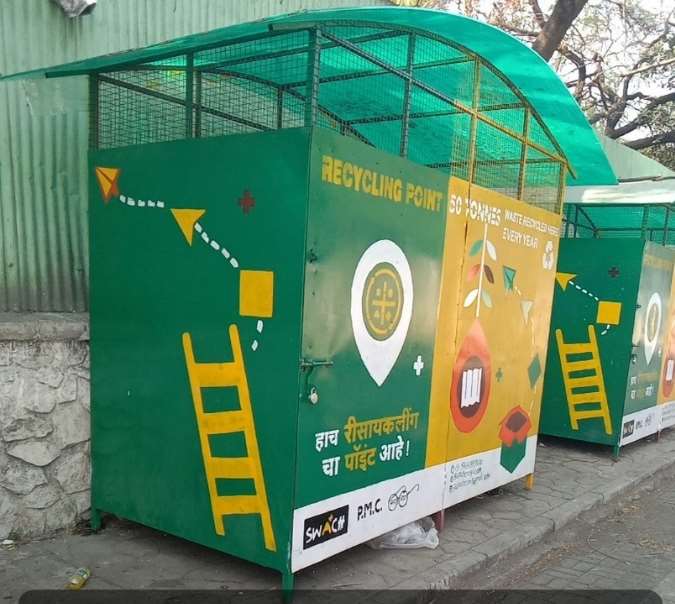
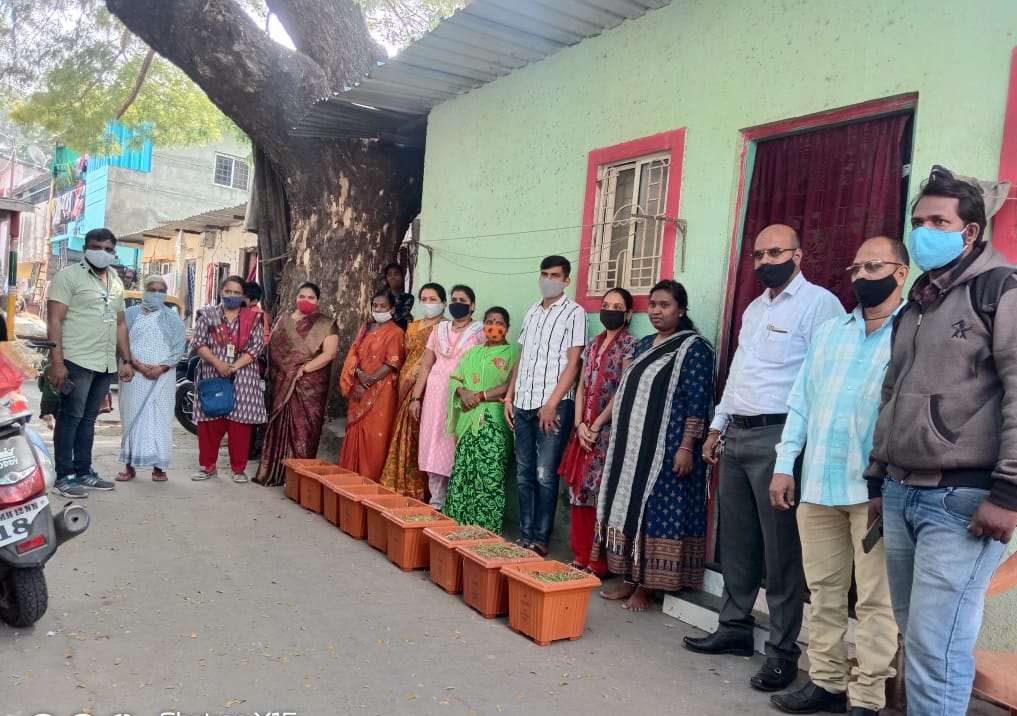
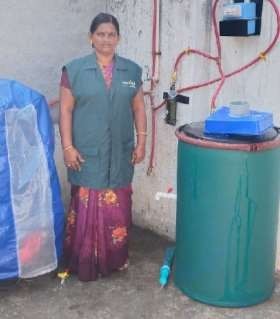
The sustainable waste management approach in the informal settlements in cities like Navi Mumbai and
Pune is replicable and adaptable at other locations too. As circular economy is sustainable and
eliminates waste to the maximum possible extent, the shift towards zero-waste model for the informal
settlements was a swachh move. It demonstrates organized and systematic processes of sanitation and
waste management involving the residents, waste-pickers, NGOs, and CSR companies. With 100% door-to-door
collection, segregation, and processing, these initiatives ensure environmental preservation and promote
swachhata in urban landscape.
WEBSITE: https://sbmurban.org/
FACEBOOK: Swachh Bharat Mission - Urban | TWITTER: @SwachhBharatGov
INSTAGRAM:sbm_urban | YOUTUBE: Swachh Bharat Urban | LINKEDIN: swachh-bharat-urban